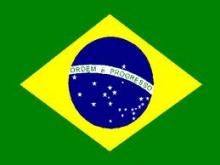
Pianist and educator Cliff Korman, an authority on Brazilian jazz, has provided this collection of research resources on the subject to Jazz Studies Online. The references offer a window into the history, traditions, and contemporary trends of Brazilian jazz and popular music expressions.
Brazilian music is neither "Latin", "Afro-Cuban," nor "Afro-Caribbean," nor exclusively "Afro-Brazilian." Its roots include Luso (i.e., Portuguese), French, German, Italian, Arabic, Jewish, Angolan, Mozambican and Yoruban cultures. It is formed by diverse streams of influence, genres, and styles born in the numerous regions of Brazil since the colonial era (the 16th to the early 19th centuries), and a culture of creativity that both generates identifiably "Brazilian" work, and absorbs and transforms non-domestic influences. This process was first described in Oswaldo de Andrade's Manifesto Antropófago, a declaration of Brazilian cultural identity and independence published in 1928 ("Antropófago" refers to "cultural cannibalism").
The resources collected here include a course syllabus (which contains a lists of explanations of relevant styles, of composers, and of repertoire), a bibliography of sources in English and Portuguese (which also contains a brief discography), and a list of doctoral dissertations on Brazilian jazz. JSO expects this site to expand to include more curricula, essays, links to research documents, university sites, major artist sites, interviews, and video clips.
